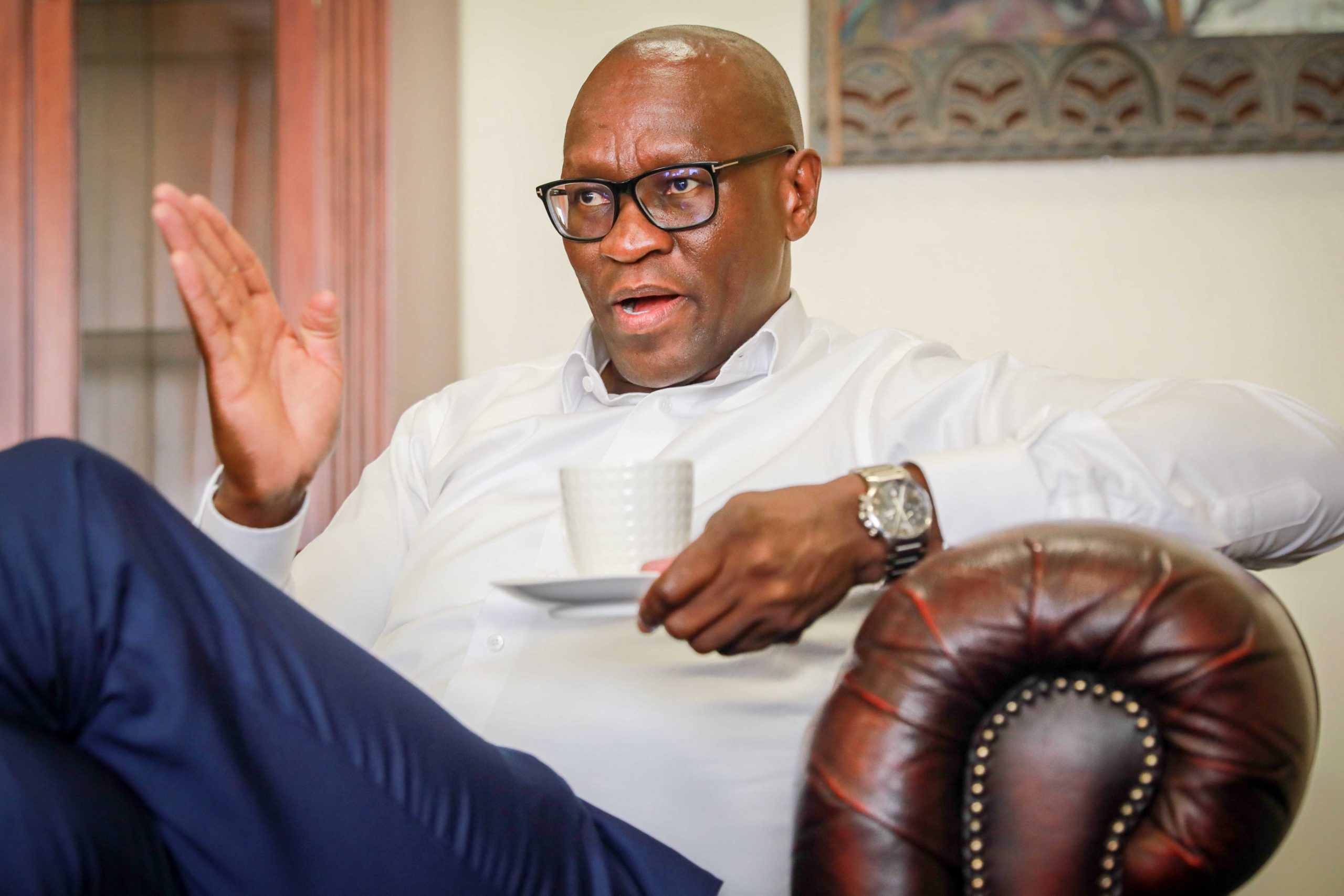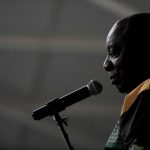New policy conflict in digital television rollout
The SABC is looking to a digital future that is less reliant on the Digital Terrestrial Television network.
Author:
7 November 2019

Sixteen years have passed since South Africa first started planning for the digital television revolution. In that time, 10 communication ministers have held that portfolio and close to R10 billion has been spent on the project. But it still remains in limbo with numerous deadlines missed.
The digital terrestrial television (DTT) network has been built, but only 500 000 South Africans are currently using it to watch television. The original plan was to migrate five million South African households to the platform.
Over the past decade, the global trend has been to migrate from analogue to digital before the International Telecommunications Union June 2015 deadline. South Africa missed that deadline and has still not migrated.
Countries migrate their broadcast services to free up spectrum, which can be used to roll out mobile and Wi-Fi communication services, as well as allow for higher-quality broadcasting.
Related article:
For viewers at home, the switch to digital means your old analogue television set will no longer receive signal, so you either have to get a set-top box and antennae or purchase a digital television.
But a new policy deadlock between the Department of Communications and the state-owned South African Broadcasting Corporation (SABC) shows that after 16 years, not a lot has changed. DTT rollout is no closer and high-quality digital broadcasting remains a pipe dream for many South Africans.
Has the country’s migration from analogue television to DTT television completely failed? “Government has no plan,” said one broadcasting sector analyst, who spoke on condition of anonymity. “They just keep kicking the DTT migration down the road.”
There are 800 000 antennae and set-top boxes, which would allow analogue television sets to receive a digital signal, sitting in warehouses around the country but South Africa’s policy on DTT keeps changing. These changes have resulted in a number of court cases, which significantly delayed the rollout. The new policy conflict came to light after a recent strategy announcement from the SABC, which suggested that it didn’t see DTT as a dominant technology in its future.
SABC’s strategy for digital
In late October, SABC chief executive Madoda Mxakwe gave an address at watchdog Media Monitoring Africa’s Media Freedom Week in Johannesburg, titled “A vision of the SABC as multiplatform, multichannel public service content provider”. During his address, Mxakwe announced that the SABC planned to make use of direct-to-home (DTH) satellite television technology to pursue its digital strategy and would rely less on the DTT system.
He also announced that the SABC had developed an over-the-top (OTT) strategy for video streaming services and plans to acquire its own OTT-streaming platform as a medium-term goal.
“We believe that satellite has significant advantages over the current DTT network and, therefore, the SABC’s turnaround plan envisages a far greater deployment via satellite,” said Mxakwe. “Worldwide, broadcasters are migrating to online streaming and DTH, and there is an international trend to move away from DTT in some territories.”
So has South Africa missed the DTT bus? A number of broadcasting analysts think it has. “We didn’t just miss the bus, we sent the bus in the wrong direction,” says William Bird, head of Media Monitoring Africa. “For all intents and purposes, DTT is dead in the water. It’s past. It’s had its time.”
A few analysts were less adamant that DTT was history, suggesting the platform is not yet obsolete, but they admitted that government’s rollout doesn’t inspire confidence. One broadcasting sector analyst said the SABC’s desire to look at DTH satellite versus DTT is “valid” as the signal broadcast costs could be a third of what they are on DTT. The analyst said that if the department expects the SABC to use DTT when it is more expensive, the government should fund it as “they could have done it cheaper”.
Wasteful expenditure
But the analyst pointed out that if there is a change in government’s DTT policy, it could result in significant wasteful expenditure, both in the DTT network that state-owned broadcasting company Sentech has rolled out and for the 800 000 set-top boxes sitting in warehouses.
Bird supported Mxakwe’s announcement, saying that the SABC has to do what their needs dictate. They can’t wait around for DTT. Mxakwe admitted during his speech that the current DTT policy and regulations limit the SABC’s ability to use direct-to-home satellite and that the public broadcaster has taken this up with the government and the Independent Communications Authority of South Africa.
“The SABC board has a fiduciary duty to make decisions that will be in the long-term interest of the public broadcaster, and it is mission critical that we are able to independently decide on which platforms will be in the SABC and our audiences’ best interests,” said Mxakwe, who called South Africa’s broadcasting and regulatory framework “out of date”.
But department spokesperson Nthabeleng Mokitimi-Dlamini said there is no plan to change the policy to allow the SABC to pursue its choice of DTH. “While the SABC has stated its preferred technology for digital migration at this juncture, there are no plans to introduce a policy shift on broadcasting digital migration.” Currently, the government DTT policy prescribes that 84% of coverage is to be provided by DTT and only 16% by DTH.
What does this mean for DTT?
The SABC has always been the flagship of the DTT project. The platform would have allowed other broadcasters to use it, but it was billed as a way for the public broadcaster to expand beyond its three analogue television channels – from the SABC’s perspective, this appears to have changed.
But the government is eager to push ahead with the DTT rollout. A broadcasting platform is only as good as the content on it, so if the SABC’s strategy is going to prioritise satellite and video streaming, the DTT platform appears to be facing the loss of its flagship.
Related article:
Without compelling content, the DTT platform will equate to what Bird refers to as “a set-top box for the poor”, those who cannot afford an OpenView or DStv satellite option.
One broadcasting analyst wondered who was going to fund the new content necessary for the DTT platform to be a success. “Compelling content is needed to attract people to a new broadcast platform,” said the analyst.
The announcement of Mxakwe’s new strategy could also pose a serious threat to Sentech, which transmits television and radio broadcast signals. Between 2002 and 2015, Sentech received R2.6 billion in funding from the state for the rollout of DTT. If the SABC plans to make limited use of this broadcast system, questions need to be asked about how much of that money will now result in wasteful expenditure.
Main customer
The SABC remains Sentech’s biggest customer, with payments representing 59% of the signal broadcaster’s R1.4 billion revenue in the 2018-2019 financial year.
Sentech has remained tight-lipped following Mxakwe’s announcement. “We have noted the coverage around the matter,” said Sentech spokesperson Milisa Kentane. “Sentech remains aligned to its mandate, and the SABC remains our customer.”
Sentech is in “constant engagement” with the public broadcaster regarding its needs for “current and future services”, she added. “Matters pertaining to government and policy may be referred to our shareholder,” said Kentane. Sentech’s shareholder is the communications department.
The SABC would not comment on or answer detailed questions regarding the impact of its new strategy on Sentech and the DTT system. It merely forwarded a copy of Mxakwe’s speech.
SABC spokesperson Vuyo Mthembu said the public broadcaster would communicate detailed plans around its strategy at some stage, but had no further comment to make at present.


